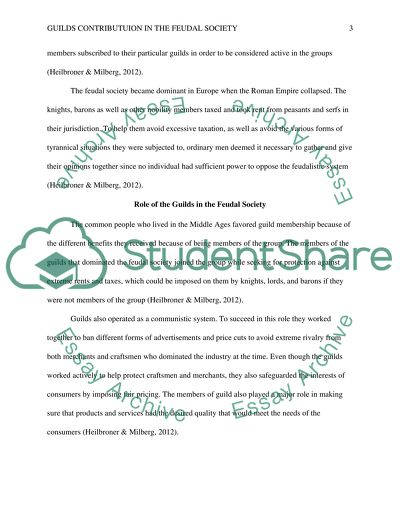Cite this document
(“Guilds Contribution in the Feudal Society Research Paper”, n.d.)
Guilds Contribution in the Feudal Society Research Paper. Retrieved from https://studentshare.org/history/1669404-social-political-and-economic-themes-in-western-civilization-essay
Guilds Contribution in the Feudal Society Research Paper. Retrieved from https://studentshare.org/history/1669404-social-political-and-economic-themes-in-western-civilization-essay
(Guilds Contribution in the Feudal Society Research Paper)
Guilds Contribution in the Feudal Society Research Paper. https://studentshare.org/history/1669404-social-political-and-economic-themes-in-western-civilization-essay.
Guilds Contribution in the Feudal Society Research Paper. https://studentshare.org/history/1669404-social-political-and-economic-themes-in-western-civilization-essay.
“Guilds Contribution in the Feudal Society Research Paper”, n.d. https://studentshare.org/history/1669404-social-political-and-economic-themes-in-western-civilization-essay.


